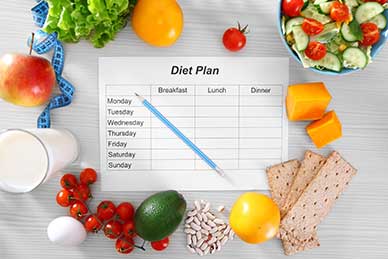People in the Western world have more food availability and eat more calories than ever, as evident by our expanding waist lines. However, many of us still are not getting the vitamins and minerals that we need. This can have extremely detrimental health effects, especially when it comes to magnesium. This mineral plays an important role in so many different cell processes that if you aren’t getting enough, you may be at higher risk of devastating diseases such as diabetes, heart disease and stroke.
What Is Magnesium?
Magnesium is a mineral that is present in our foods and also used as a medicine in some cases. You may be familiar with Epsom salts, which are made of magnesium salts and a popular home remedy for constipation, muscle aches and a wide variety of complaints. Magnesium plays a crucial part of more than 300 biochemical processes in the human body, including protein synthesis, nerve function, muscle function, maintaining a healthy circadian rhythm and maintenance of cardiovascular health. Magnesium is essential for building and maintaining strong bones and teeth as well as synthesizing DNA and RNA. It is part of the process of oxidative phosphorylation, which converts the calories we eat to energy our cells can use. Magnesium also functions as an electrolyte, helping to maintain the ionic gradients that allow optimal nerve, muscle and cardiac function.
It is impossible to live without magnesium. However, even a minor deficiency in this mineral can deprive you of the many magnesium health benefits and leave you functioning at less than optimal speed. People who have low magnesium may have chronic pain including migraines, headaches, joint pain and muscle cramps. They may also suffer from insomnia, depression and fatigue. When people have critically low levels of magnesium, they can develop seizures as well as cardiac arrhythmias, both of which can be fatal. Unfortunately, our modern diets tend to have substandard levels of this critical nutrient, leading many health experts to call low magnesium the “silent epidemic of our times.”
Magnesium Health Benefits
According to new research, magnesium may have more long-term health benefits than we previously realized. People who get the required amount of this mineral, which is 300 mg a day for men and 270 mg a day for women, may actually have a lower risk of diseases including diabetes, heart disease and stroke. Researchers followed people from around the world and tracked their dietary intake of nutrients. People who ate magnesium-rich diets over the course of their lifetimes had a lower overall risk of these diseases. This was true even when controlling for variables such as overall dietary quality and socioeconomic factors.
Getting enough magnesium is especially important for women of childbearing age. Magnesium is essential to a developing fetus’s needs and also important for breastfeeding infants. Many women do not get the additional magnesium that they need to support reproduction, which means that they can end up with immense deficiencies even while eating what they believe to be a reasonable diet. Getting enough magnesium is also important for people who are in the process of growth or healing, such as children and those who have recently been ill. Magnesium is essential to manufacturing proteins, muscle and other essential elements of the human body.
Do You Need More Magnesium?
 If you suspect you may be low on magnesium, you are not alone. Experts estimate that around one in 50 people in the Western world is seriously deficient in this mineral. Magnesium can be found in a variety of foods such as fish, soybeans, avocados, nuts and seeds, dark leafy greens, yogurt and even chocolate. People who need more magnesium can also take a supplement or even a multivitamin, as these usually contain a healthy range of minerals. Popular antacids contain this mineral because it quickly coats and soothes heartburn and ulcers. Soaking in Epsom salts is also believed to act as a supplement because magnesium can be absorbed through the skin. Regardless of how you choose to take in this mineral, the magnesium health benefits are too powerful to be passed up.
If you suspect you may be low on magnesium, you are not alone. Experts estimate that around one in 50 people in the Western world is seriously deficient in this mineral. Magnesium can be found in a variety of foods such as fish, soybeans, avocados, nuts and seeds, dark leafy greens, yogurt and even chocolate. People who need more magnesium can also take a supplement or even a multivitamin, as these usually contain a healthy range of minerals. Popular antacids contain this mineral because it quickly coats and soothes heartburn and ulcers. Soaking in Epsom salts is also believed to act as a supplement because magnesium can be absorbed through the skin. Regardless of how you choose to take in this mineral, the magnesium health benefits are too powerful to be passed up.
If you are trying to get more magnesium, health benefits may await you both now and over the course of your lifetime. Not only will you have a lower disease risk, but you will enjoy more energy and less aches and pains over the course of your life. Consider adding magnesium-rich foods or a supplement that contains magnesium to your diet if you believe you may be deficient in this very important element.
 There are ways to lose weight and maintain a healthy weight for a lifetime, but these are not crash diets so much as permanent lifestyle changes. Here are a few ways that you can begin a lifelong journey toward a trim figure and a healthy relationship with food:
There are ways to lose weight and maintain a healthy weight for a lifetime, but these are not crash diets so much as permanent lifestyle changes. Here are a few ways that you can begin a lifelong journey toward a trim figure and a healthy relationship with food: Unfortunately, many elderly people experience more decline in their cognitive health than this. Even people who do not have dementia may find themselves dealing with a condition known as
Unfortunately, many elderly people experience more decline in their cognitive health than this. Even people who do not have dementia may find themselves dealing with a condition known as  Iron plays
Iron plays  If you believe that you are suffering from a deficiency of iron, there are several ways to quickly build up healthy levels of this vitamin. Many people simply add more iron-rich foods to their diets and take care to eat vegetarian sources of iron with an acidic food such as lemon. However, it can be difficult to get the iron that you need from diet alone, especially for women of reproductive age and young children who are growing quickly. For these people, taking an iron supplement or a
If you believe that you are suffering from a deficiency of iron, there are several ways to quickly build up healthy levels of this vitamin. Many people simply add more iron-rich foods to their diets and take care to eat vegetarian sources of iron with an acidic food such as lemon. However, it can be difficult to get the iron that you need from diet alone, especially for women of reproductive age and young children who are growing quickly. For these people, taking an iron supplement or a  According to new research, a vitamin B12 deficiency during pregnancy may have more effects than previously realized. Even babies who are born appearing to be in good health may suffer the consequences over their lifetimes. In one study, vitamin B12 levels were measured in pregnant women and both their and their babies’ health was analyzed. Babies born to mothers with a B12 deficiency had
According to new research, a vitamin B12 deficiency during pregnancy may have more effects than previously realized. Even babies who are born appearing to be in good health may suffer the consequences over their lifetimes. In one study, vitamin B12 levels were measured in pregnant women and both their and their babies’ health was analyzed. Babies born to mothers with a B12 deficiency had  How can timing the administration of a drug make such a difference? Cancer cells tend to have a circadian rhythm that is different from that of healthy cells. They have often lost many of the checkpoints to growth that are present in healthy cells, which means that they can grow almost continuously. While they may grow faster at certain times of day, they are growing or preparing to do so almost constantly. On the other hand, human cells grow only for very small periods of time during the day.
How can timing the administration of a drug make such a difference? Cancer cells tend to have a circadian rhythm that is different from that of healthy cells. They have often lost many of the checkpoints to growth that are present in healthy cells, which means that they can grow almost continuously. While they may grow faster at certain times of day, they are growing or preparing to do so almost constantly. On the other hand, human cells grow only for very small periods of time during the day.